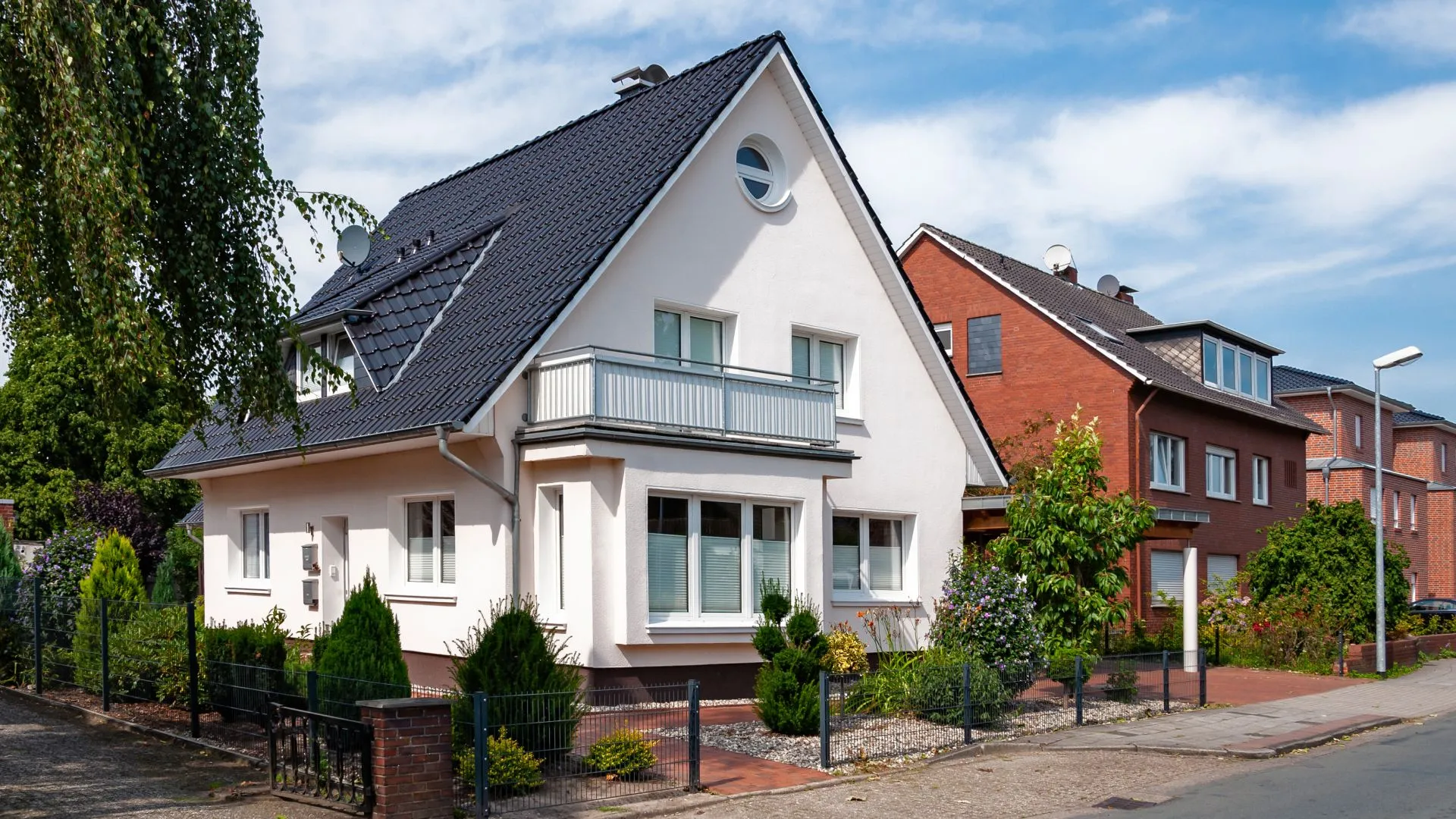Real Estate Investment in Germany: Your Guide to Top Cities, Benefits, and Smart Financial Decisions

Author
Preet PawarReal Estate Investment in Germany: A Beginner's Guide to Building Wealth
Table of Contents
- Introduction
- Why Invest in Germany?
- Choosing the Best City in Germany: Key Factors to Consider?
- Top Cities in Germany for Real Estate Investment: Where to Buy for Maximum Returns
- Berlin Real Estate Market: Why Investors are Eyeing Germany's Capital
- Munich Property Investment: Opportunities and Challenges in a High-Value Market
- Exploring Hamburg: Investment Potential and Key Highlights
- Frankfurt as a Financial Hub: Real Estate Insights
- Cologne and Leipzig: Unique Opportunities for Real Estate Investors
- How to Start Your Real Estate Investment Journey in Germany’s Top Cities
- FAQs
- Conclusion: Why Germany’s Real Estate Market is Attracting Global Investors
- Summary of all aspects for each city:
Introduction
Are you considering investing in German real estate but unsure where to start? With its stable economy, strong rental demand, and high-quality cities, Germany offers one of the most attractive property markets in Europe. From dynamic hubs like Berlin to affluent Munich, understanding the potential of each city is key to making a smart investment. This guide will walk you through top cities, insights, and practical tips for building wealth through German real estate investment.
Why Invest in Germany?
Germany stands out as a prime real estate market due to its strong economy, low-interest rates, and consistent demand for housing. With its well-regulated real estate market and stable returns, Germany appeals to investors looking for reliable, long-term gains. Real estate in Germany can serve as both a wealth-building asset and a rental income generator. Explore the Real Estate Search Engine to see available listings that align with your investment goals.
Choosing the Best City in Germany: Key Factors to Consider
When selecting a city to settle in within Germany, it's essential to consider a range of factors that can significantly impact your quality of life. These factors range from transportation and community to family amenities and the local food scene. Let's explore some of the key considerations for choosing the best city for expats in Germany.
Factors to Consider When Choosing a City in Germany
1. Public Transportation System
One of the primary factors to consider when selecting a city in Germany is the efficiency of its public transportation. A robust transportation system can simplify daily commutes, especially for expats without a car. Cities like Berlin and Munich have expansive networks of trains, trams, and buses, making it easy to navigate the city and explore nearby regions. This accessibility reduces the dependency on personal vehicles and offers a cost-effective, environmentally friendly way to get around.
2. Presence of an International Community
For expats, a city's international community can play a significant role in easing the transition into a new culture. Cities such as Berlin, Munich, Hamburg, and Dusseldorf are known for their large expat populations and English-speaking residents, along with international schools, diverse cultural events, and communities that make it easier for newcomers to feel at home. These cities offer a wealth of resources that help expats navigate life abroad and find a sense of belonging.
3. Family Friendliness
For expat families, finding a city that offers a family-friendly environment is essential. Smaller cities like Bonn and Heidelberg often appeal to families due to their slower pace of life, abundant outdoor activities, and excellent school systems. These cities typically provide plenty of parks, playgrounds, and community events designed for families, making them attractive options for those looking to raise children in a welcoming environment.
4. Easy Access to Airports
Expats who travel frequently or work in multiple countries may prioritize a city with convenient airport access. Major German cities such as Berlin, Munich, Frankfurt, and Hamburg have international airports that are well-connected to the city center by public transportation, allowing for quick and hassle-free travel. This accessibility is a significant advantage for professionals who need to travel frequently for work or for expats who often visit family abroad.
5. Food and Drink Scene
Germany’s culinary diversity is another attractive factor for expats choosing where to live. Cities like Berlin, Munich, Hamburg, and Dusseldorf boast diverse food scenes, offering everything from traditional German fare to international cuisine. Food enthusiasts will enjoy the variety of dining options, from schnitzel and sausages to international flavors from around the globe. Additionally, Germany's renowned beer culture is alive and well in these cities, with local breweries, beer gardens, and pubs that serve a wide range of beers, making the local culinary scene both vibrant and unique.
Top Cities for Expats in Germany
Berlin: The International Hub
With its diverse culture and vibrant expat community, Berlin is one of the most popular choices for international residents. The city's extensive public transportation, rich cultural heritage, and booming food scene make it a top pick for those seeking a dynamic and inclusive environment. Berlin also offers an array of international schools, making it a suitable choice for families.
Munich: High Quality of Life and Stability
Munich is known for its high quality of life, well-organized public transport, and low crime rates. As the capital of Bavaria, Munich offers a stable job market with a focus on industries such as technology, engineering, and finance. This city is a favorite among expats seeking a well-structured environment with access to both urban and outdoor activities.
Hamburg: Port City with Economic Opportunities
Hamburg, Germany's largest port city, is an economic powerhouse with a diverse range of industries. The city is known for its high standard of living, abundant job opportunities, and thriving cultural scene. For expats looking for a cosmopolitan city with both career prospects and quality of life, Hamburg is an excellent choice.
Frankfurt: Financial Hub with a Global Flair
As Germany’s financial center, Frankfurt is home to the European Central Bank and numerous multinational corporations. This makes it an ideal city for finance professionals and expats seeking career advancement. With easy access to a major international airport, Frankfurt is well-connected, providing an ideal base for frequent travelers and expat professionals.
Cologne: Cultural Richness and Family-Friendly
Cologne is known for its iconic cathedral, historical landmarks, and warm local culture. This city combines a relaxed atmosphere with plenty of job opportunities, particularly in media and creative industries. For families, Cologne offers great schools, parks, and a strong sense of community, making it an appealing option for expats.
Conclusion: Finding Your Ideal City in Germany
Choosing the best city in Germany as an expat depends on your individual priorities, whether it's access to public transportation, family-friendly amenities, or a vibrant international community. By considering factors such as transport, job opportunities, and local culture, expats can make an informed choice that best suits their lifestyle and goals. Each of Germany’s major cities offers unique benefits, ensuring that every expat can find a place to feel at home. Whether you’re drawn to the cultural diversity of Berlin, the economic opportunities in Frankfurt, or the family-friendly environment of Heidelberg, Germany has something for everyone.
Top Cities in Germany for Real Estate Investment: Where to Buy for Maximum Returns
Germany’s diverse urban landscape offers various real estate investment options. While Berlin and Munich lead in popularity, cities like Frankfurt, Hamburg, and Stuttgart present unique opportunities for different investor profiles. Let’s explore the specifics of each.
Berlin Real Estate Market: Why Investors are Eyeing Germany's Capital
Berlin, with its dynamic economy and rapidly growing population, is a top real estate investment destination. Known for its cultural vibrancy and relatively affordable property prices, the Berlin market offers excellent opportunities for long-term appreciation. High-demand neighborhoods like Mitte and Kreuzberg continue to attract both residents and short-term renters. Berlin's strong rental market makes it an appealing option for those looking to invest in rental properties.
Munich Property Investment: Opportunities and Challenges in a High-Value Market
Munich offers stability, high quality of life, and a booming job market, making it one of Germany’s most expensive yet desirable real estate markets. The city’s low vacancy rates and premium rental prices yield great long-term potential. However, investors should be aware that high property values in Munich can mean larger upfront costs. For detailed investment analysis, try the Property Investment Calculator to see how Munich properties could fit your portfolio.
Exploring Hamburg: Investment Potential and Key Highlights
Hamburg is an economic powerhouse with a strong real estate market. Known for its shipping and aerospace industries, the city attracts a steady influx of professionals. Hamburg’s HafenCity district, a redeveloped waterfront area, is a hotspot for property investment. The mix of residential and commercial properties in this region makes it attractive to investors looking for high returns in a stable urban environment.
Frankfurt as a Financial Hub: Real Estate Insights
As Germany’s financial heart, Frankfurt is home to the European Central Bank and numerous multinational corporations. The demand for luxury apartments and office space continues to drive up property values in the city. Frankfurt’s Nordend and Sachsenhausen districts are particularly popular for high-end real estate investment, with proximity to both business and cultural hubs.
Cologne and Leipzig: Unique Opportunities for Real Estate Investors
Cologne, with its rich cultural heritage and robust economy, is ideal for long-term real estate investments. Meanwhile, Leipzig is becoming increasingly popular due to its affordability and rising demand. Both cities offer distinct advantages: Cologne has a solid rental market, while Leipzig’s affordable properties and growth potential appeal to new investors.
How to Start Your Real Estate Investment Journey in Germany’s Top Cities
Getting started with real estate investment in Germany requires careful planning. Begin by using the Real Estate Search Engine to browse available properties in your city of choice. The next step involves evaluating the potential returns, risks, and location benefits. Additionally, consulting with local real estate experts can provide invaluable insights tailored to the German market. For personalized advice, feel free to contact us for a one-on-one consultation.
Frequently Asked Questions
1. Why is Germany a popular choice for real estate investment?
Germany offers a stable economy, high demand for rentals, and consistent property value growth, making it a secure and profitable market for real estate investors.
2. What are the top cities for real estate investment in Germany?
Top cities include Berlin for its affordability, Munich for its stability, Frankfurt as a financial hub, and Hamburg for its strong rental market.
3. Is Berlin or Munich better for real estate investment?
Berlin is known for its affordable options and growth potential, while Munich is more stable but has higher property prices. The choice depends on your budget and investment goals.
4. How can I start investing in German real estate?
You can start by researching top cities, using tools like our Real Estate Search Engine to explore listings, and consulting with local experts to guide your purchase.
5. What are the benefits of renting properties in Germany's top cities?
High rental demand, low vacancy rates, and attractive rental yields in cities like Berlin, Munich, and Frankfurt provide consistent income for property owners.
Conclusion: Why Germany’s Real Estate Market is Attracting Global Investors
- Stable and robust economy, making German real estate a reliable investment.
- High demand for rental properties, especially in major cities like Berlin and Munich.
- Diverse real estate options, from affordable properties in Leipzig to luxury options in Frankfurt.
- Consistent property value appreciation over the years, ensuring long-term growth.
- Opportunities to build wealth in Germany's regulated and well-structured real estate market.
Summary of all aspects for each city:
Munich
- Location: Southern Germany, close to the Alps
- Property Prices: High compared to other cities in Germany
- Rental Yields: Moderate, but steady growth expected
- Demand: High demand due to strong economy and job market
- Quality of Life: High, with excellent healthcare and education system
- Ease of Doing Business: Efficient bureaucracy and business-friendly environment
- Foreign Investment Regulations: Relatively open and welcoming to foreign investors
- Infrastructure: Well-developed transportation and communication networks
- Future Growth Potential: Projected to continue growing due to strong economy
Berlin
- Location: Eastern Germany, capital city
- Property Prices: Generally lower than Munich but rapidly increasing
- Rental Yields: High rental yields, especially in central districts
- Demand: High demand, with a large expat and startup community
- Quality of Life: High, known for cultural richness and diverse lifestyle
- Ease of Doing Business: Strong support for startups and international business
- Foreign Investment Regulations: Open to foreign investors, with a robust regulatory framework
- Infrastructure: Excellent public transport, expanding digital infrastructure
- Future Growth Potential: High growth potential due to strong population influx and economic expansion
Frankfurt
- Location: Central Germany, financial hub
- Property Prices: High, especially in the city center
- Rental Yields: Strong rental yields due to demand for housing near financial institutions
- Demand: High, fueled by the finance sector and international residents
- Quality of Life: High, with good healthcare, schools, and recreational options
- Ease of Doing Business: Business-friendly, with a focus on financial services
- Foreign Investment Regulations: Welcoming, especially for international investors
- Infrastructure: Excellent infrastructure, major international airport
- Future Growth Potential: Expected to grow steadily due to its financial significance
Hamburg
- Location: Northern Germany, major port city
- Property Prices: Moderate to high, with competitive pricing near the port
- Rental Yields: Moderate, with growth expected in some residential areas
- Demand: Consistent demand, especially for waterfront properties
- Quality of Life: High, with cultural amenities, green spaces, and water access
- Ease of Doing Business: Business-friendly, especially for logistics and media industries
- Foreign Investment Regulations: Open, with no special restrictions for foreign investors
- Infrastructure: Strong transport network, major shipping hub
- Future Growth Potential: Steady growth potential due to its economic and logistical role
Stuttgart
- Location: Southwestern Germany, manufacturing hub
- Property Prices: Moderate to high, depending on proximity to industrial zones
- Rental Yields: Strong yields in some high-demand areas
- Demand: High, driven by automotive and engineering industries
- Quality of Life: High, with access to nature, cultural sites, and urban amenities
- Ease of Doing Business: Favorable, with strong industry support
- Foreign Investment Regulations: Open, encouraging foreign investment in industrial areas
- Infrastructure: Well-connected by rail and road, near European business corridors
- Future Growth Potential: Stable, with continued demand in manufacturing and engineering
Cologne
- Location: Western Germany, near the Rhine River
- Property Prices: Moderate, with steady increases in desirable neighborhoods
- Rental Yields: Moderate yields, with good returns in family-friendly areas
- Demand: Consistent, with demand from creative and media sectors
- Quality of Life: High, known for its vibrant cultural scene and historic sites
- Ease of Doing Business: Supportive of small businesses and creative industries
- Foreign Investment Regulations: Accessible, with favorable conditions for international investors
- Infrastructure: Good transport links, international airport nearby
- Future Growth Potential: Steady, with a growing population and demand in media-related sectors



